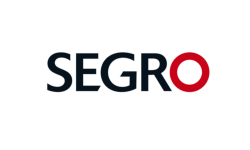
By Magdalena Szulc, managing director, Central Europe, SEGRO

Magdalena Szulc, managing director, Central Europe, SEGRO, talks to the BPCC’s Michael Dembinski about the challenges of striving for growth while at the same time keeping the environment and society at the forefront of the business leader’s mind.
As this is the post-COP28 issue, let’s start by talking about SEGRO’s sustainability and CSR principles, and how these commitments influence your strategy and daily operations.
A commitment to be a force for social and environmental good is integral to SEGRO’s purpose and strategy. Our Responsible SEGRO framework focuses on three long-term priorities where the company believes it can make the greatest impact: Championing Low-Carbon Growth, Investing in Local Communities and Environments, and Nurturing Talent.
We implement initiatives like energy-efficient technologies, waste reduction, or educational programmes for students from SEGRO`s neighbourhood. Our SEGRO Academy and touchless water dispensers installed in educational institutions in Łódź and Gliwice are two of many examples activities within our Community Investment Plans in Poland. By integrating Responsible SEGRO into our strategy and daily operations, we ensure that sustainability and social responsibility remain at the core of our business practices.
Can you give some examples of sustainability initiatives at SEGRO’s Polish warehouses?
In our Polish warehouses, particularly in the newer buildings, we have focused on implementing energy-efficient lighting and using sustainable building materials. We strive to source these materials from local suppliers or use recycled materials whenever possible to reduce the carbon emissions from transporting them and the embodied carbon from creating new ones. In addition, we ensure that our Polish facilities are supplied with 100% green energy originating from wind and solar sources. These measures, combined with the sustainable design of modern facilities, help reduce environmental impact and promote eco-friendly practices within the logistics industry.
What makes warehouses in Poland more sustainable for the logistics industry?
The Polish warehouse market, being less mature than its western European counterparts, offers a competitive edge in the green transformation of logistics. Boasting more modern construction, warehouses in Poland are designed with sustainability at their core, incorporating energy-efficient technologies and eco-friendly materials. This forward-thinking approach positions Poland as a leader in environmentally responsible logistics.
What about technology and innovation?
We’re all about leveraging technology and innovation. We invest in advanced warehouse management systems and automation to optimise processes, reduce energy consumption, and minimise environmental impact. For instance, clients in SEGRO parks can utilise Building Management Systems (BMS) to efficiently monitor and control various building functions like heating, ventilation, air conditioning, and lighting. This approach enhances overall operational efficiency as well as promoting energy conservation and a reduced environmental footprint.
What challenges do you see as the logistics sector goes green, and how is SEGRO preparing to tackle these challenges?
Balancing cost-efficiency with sustainability investments can be challenging. We address this by prioritising eco-friendly solutions, staying informed about industry innovations, and seizing new opportunities to enhance both our environmental performance and our customers’ satisfaction.
As SEGRO expands in Poland, what are your long-term objectives?
Our long-term goals emphasise sustainability and social responsibility, as we strive to lead the green transformation of the logistics industry while supporting local communities and adhering to ethical business practices. I mentioned our Responsible SEGRO framework which sets out our commitments to the environment, our communities, and our people; this ensures that these priorities are embedded in everything we do. By implementing energy-saving solutions, providing charging stations for electric vehicles, installing beehives at logistics parks, and targeting BREEAM Excellent certification for new Polish buildings from 2022 onwards, we showcase our dedication to environmental sustainability.
Turning to the current market situation in Poland’s warehouse sector, how does it affect businesses like SEGRO?
The warehouse sector in Poland has seen some ups and downs recently. After a period of rapid growth since 2020, we observed a shift in the market dynamics earlier this year. Despite these changes, the Polish market remains attractive due to its lower rental and operational costs compared to Western Europe. We’re staying optimistic and adapting our strategies to navigate these fluctuations and continue providing value to our clients.
What’s your take on the future of logistics in Poland and Europe?
The prospects for Western Europe differ from those for Poland due to varying market maturity. With high saturation and costs in Western Europe, Poland’s logistics market offers cost-effective and sustainable growth opportunities. We anticipate steady growth in the Polish logistics market over the next few years, driven by factors such as diversified supply chains, sustainability, and the increasing need for efficient logistics solutions. The pandemic has demonstrated the importance of resilient supply chains, making Poland an attractive location for logistics operations.
What makes Poland such a go-to destination for logistics businesses?
Poland’s strategic location, infrastructure and growing economy contribute to its strong logistics sector. With a relatively young market offering potential and modern commercial properties that align with environmental trends, Poland is well-positioned for increased consumption both online and offline. The skilled workforce and competitive labour costs add to its attractiveness. SEGRO capitalises on these opportunities by investing in modern facilities, focusing on strategic locations, and providing tailored solutions to customers.
How is SEGRO preparing for potential disruptions or challenges in the industry, such as geopolitical changes or trade disputes?
When it comes to risk management, we’re proactive and flexible. We keep an eye on geopolitical developments and global trade trends to anticipate potential impacts. And SEGRO focuses on building strong relationships with our customers and stakeholders, ensuring open communication channels to navigate any challenges together and adapt to the ever-changing landscape of the logistics industry.
Can we close with an overview of some of your recent expansion efforts?
As part of our ongoing growth in Poland, we have acquired a 16-hectare industrial site in Warsaw where we plan to construct a new park in the near future. This investment is in line with our approach to driving sustainable growth, emphasising low-carbon development, and reducing environmental impact by developing in the industrial zones.



















